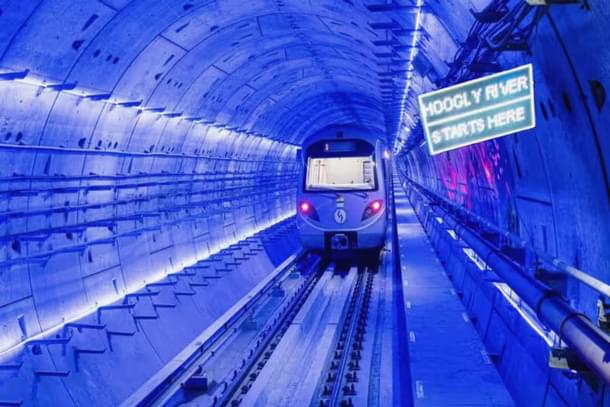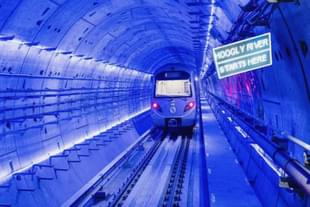Infrastructure
Kolkata Metro To Install Battery Power For Moving Stranded Trains, A First Of Its Kind In Any Indian Metro System
Swarajya Staff
Jun 10, 2024, 03:19 PM | Updated 03:38 PM IST
Save & read from anywhere!
Bookmark stories for easy access on any device or the Swarajya app.


For the first time in the country, the Kolkata Metro is installing a battery system that will allow a train filled with passengers to swiftly reach the nearest station during power outages.
This Battery Energy Storage System (BESS) is set to debut on the Dakshineswar-New Garia corridor (Blue Line) and is slated for completion by year-end.
The new system, an amalgamation of inverters and Advance Chemistry Cell (ACC) batteries, will be installed at Noapara, Shyambazar, Central and Jatin Das Park substations.
ACCs are the new generation advanced energy storage technologies that can store electric energy either as chemical energy or electrochemical and convert it back to electric energy as and when required.
“It would be the first such initiative in the country to further ensure commuters’ safety and improve energy consumption,” a Metro spokesperson said the Businessline.
Earlier in August 2023, Kolkata Metro had floated a tender to commission 4MW four-quadrant inverters using Lithium Iron Phosphate (LFP) battery or Lithium Titanium Oxide (LTO) batteries as energy storage element.
Following competitive bidding, the Indian subsidiary of a Taiwanese multinational corporation secured the contract last month.
The new system has been designed in such a way that the electricity generated with it can be used to haul stranded trains at 15- 20 km h speed from mid-tunnel to the next station in case of any power failure or even national grid failure.
This is indeed a huge advancement as passenger-packed trains won’t have to wait in underground tunnels or on viaduct for restoration of power supply in case of a disruption of power.
Additionally, the BESS system will provide 4 MW of power to the metro system, reducing its peak-hour electricity purchase requirements by a significant margin, leading to substantial cost savings for Kolkata Metro.
According to Kolkata Metro, LFP or LTO batteries to be used can be charged at night and used during commercial hours. Specified LFP/LTO batteries will be made as per the national programme on Advanced Chemistry Cell (ACC) Battery Storage.
These batteries offer improved energy efficiency, prolonged lifespan, and a smaller carbon footprint, all while minimising the health and fire risks typically associated with acidic or alkaline batteries.





